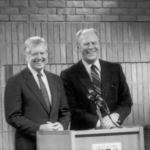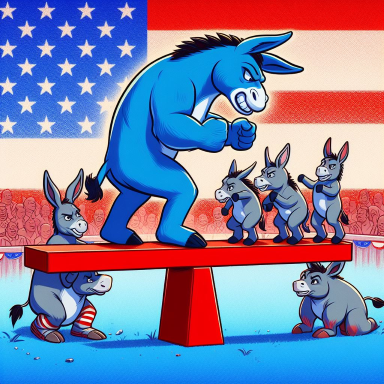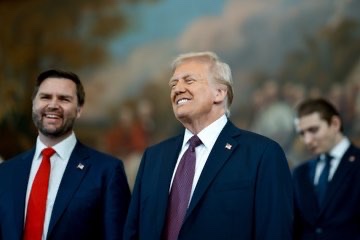If Gerald Ford Beat Jimmy Carter

The 1976 Presidential Election. Gerald Ford vs Jimmy Carter. An election between two affable, if boring, men. Both men ended up becoming Presidents who are often overlooked. Jimmy Carter served a single 4 year term, while Gerald Ford only served out the rest of Richard Nixon’s term, less than two and a half years. While it might seem like this election was not very important in American history, it was.
The result of this election wasn’t important because of the two men in question. It was important because it presented the opportunity for Ronald Reagan to become President. Ronald Reagan, whether you love or loathe him, was a very consequential President. He shifted American politics to to the right and played an instrumental role in the Cold War. He brought a conservative ideology that bears his name; Reaganism.
While his clear and defining ideology might make one think that his Presidency was inevitable, it could easily have never happened. All that needed to happen for Reagan to never become President was for Gerald Ford to beat Jimmy Carter. But why would Gerald Ford, a fellow Republican, winning the election, hurt Reagan’s chances at the Presidency?
Simply put, because political parties do not win Presidential Election after Presidential Election. Going into the 1976 Presidential election, the GOP had already won in 1968 and 1972. Had Gerald Ford won in 1976, that would have been a third election victory in a row for the GOP. While winning 3 Presidential Elections in a row is not that uncommon, winning 4 in a row is.
Had Gerald Ford won in 1976, Reagan in 1980 would have been running to win the GOP’s 4th straight election. But more importantly, he would have been running while his party was incumbent in the White House during a dour time for America. The late 1970s were plagued by stagflation, a crisis in relations with Iran, and general malaise. While a Ford presidency might have made these troubles less acute, it is unlikely Ford would have prevented them from occurring altogether.
In this context, it would be difficult for Reagan to run as an agent of change when his party had been in the White House for the last 12 years, and didn’t seem to be doing a good job. Even if Reagan was a marked change from Gerald Ford, the longer one’s party is in the White House, the more difficult it is to stay. By the time a party is trying to win a 4th election in a row, it is only possible in very specific circumstances.
Those circumstances include a party realignment, where one party comes to dominate the system. This happened in Republicans’ favor between the end of the Civil War and the beginning of the Great Depression. It happened in Democrats’ favor after the Great Depression. Another circumstance is a specific politician or a specific moment in time. This was exemplified by Franklin Delano Roosevelt, who lead America through the Great Depression and World War 2.
One could argue that 1980 was a milder version of a reset in the Republicans’ favor compared to the major version of post Civil War and post Great Depression. But even though Reagan shifted America to the right, Presidential Elections went back and forth between the two parties. And the Reagan moment was only possible because it was contrasted to an unsuccessful Democrat in office, Jimmy Carter.
Reagan was clearly a different type of Republican than Ford. But that difference likely would not have led to a victory had he been running for a 4th straight GOP term. Reagan was still closer to Ford than he was to the Democrats. He would have defended Ford as a better President than any Democrat. It would have been tough to win while defending a President Ford in the late 1970s during the malaise that took place.
Had Gerald Ford beat Jimmy Carter in 1976, it is quite likely that Ted Kennedy would have been the 1980 Democratic nominee. In our timeline, he challenged an incumbent Democratic President Jimmy Carter. Had carter lost in 1976, it is unlikely he would have been nominated in 1980. Kennedy was a leading name for Democrats for a decade prior to 1980. Only the Chappaquiddick scandal prevented him from running earlier than 1980.
In a neutral environment, I still would have given Reagan the edge over Ted Kennedy. But in this timeline, circumstances would favor Democrats in 1980. The GOP would have been incumbent during a time of malaise and would have held the White House for the past 12 years. That is almost impossible for anyone to overcome.
Despite Ted Kennedy’s inability to articulate a reason for his candidacy when asked in our timeline, I would predict a Ted Kennedy victory in 1980. And Ted Kennedy was by far the most liberal of the Kennedy brothers. Ted Kennedy’s liberalism aligns more with modern American liberalism than his brothers John and Bobby’s. A marked difference from Reagan’s conservatism.
It is very possible that had Ted Kennedy won in 1980, after 12 years of GOP rule, that he would have won two terms. The 1980s might have been defined by Ted Kennedy’s liberalism rather than Ronald Reagan’s conservatism. And of course, every election in our timeline since then would have had different results. But the next candidates would also have ran differently. Reagan’s dominance forced Bill Clinton to move the Democratic Party more towards the center.
But even if it wasn’t Ted Kennedy or liberal dominance in the 1980s, things would be drastically different had Reagan not won in 1980. Reagan had a personal and ideological imprint on America. While it is fading, his ideology was the guide for Republicans for over 3 decades. He single handedly changed the ideological course of America and the course of the Cold War.
At a certain level, this is speculative. It is possible that had Ford beat Carter in 1976, that Reagan could have still won in 1980. There is no rule that a party can’t win 4 straight terms. Or that a party can’t win a Presidential Election during poor times under their watch. It just is very unlikely. If Reagan had won in 1980 after a Ford victory in 1976, it would have been an exception.
That is why, as innocuous as the 1976 Presidential Election seemed, it was incredibly important in America’s trajectory. But not because of the two men competing in it. Because of the man the election’s result allowed to compete next. If you are on the political left, this is an election that in retrospect you might like to have lost. It might be like conservatives with the 2004 election.
Republicans won the 2004 Presidential election when George W Bush beat John Kerry. But Bush’s win and subsequent poor second term opened the door for Barack Obama to win a sweeping victory in 2008. It goes to show you that if your side loses an election, it might open a door to someone who shapes America how you wish it to be shaped, in the future.


